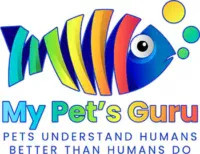Are you a proud owner of a dwarf gourami? These colorful and fascinating fish are a popular choice for aquarium enthusiasts. Not only are they beautiful to look at, but they also have unique behaviors that make them a delight to observe. One important aspect of caring for your dwarf gourami is understanding what they eat to ensure they thrive in their aquatic habitat.
Key Takeaways:
- Dwarf gouramis are omnivorous fish, meaning they eat both plant matter and small organisms.
- A well-balanced diet for a dwarf gourami includes high-quality flake or pellet food, frozen or live foods, and occasional vegetable matter.
- Avoid overfeeding your dwarf gourami as it can lead to health problems and water quality issues in the aquarium.
- Providing a varied diet will help keep your dwarf gourami healthy, active, and vibrant in color.
The Diet of Dwarf Gouramis
Dwarf gouramis are not very fussy eaters, but giving them a varied and nutritionally balanced diet will keep them in the best health. In the wild, they feed on small insects, mosquito larvae, algae, and plant matter. It’s essential to replicate this diet in their captive environment to ensure they receive all the necessary nutrients.
To make feeding your dwarf gourami a breeze, here’s a breakdown of the different types of food you can offer:
1. Flake or Pellet Food
Flake or pellet food is the staple diet for dwarf gouramis. High-quality flake or pellet food specifically designed for tropical aquarium fish will provide a well-rounded and nutritionally balanced meal. Look for options that include a blend of proteins, vitamins, and minerals to support your fish’s overall health. Feed them a small amount two to three times a day, taking care not to overfeed.
Here are some popular flake and pellet food brands suitable for dwarf gouramis:
| Brand | Features |
|---|---|
| TetraMin | A blend of protein-rich flakes |
| Hikari Micro Pellets | Specially formulated micro pellets for small fish |
| Omega One Super Color Flakes | Rich in Omega-3 fatty acids for vibrant color |
2. Frozen or Live Foods
To mimic their natural diet, it’s beneficial to supplement your dwarf gourami’s diet with frozen or live foods a few times a week. These can include bloodworms, brine shrimp, daphnia, and tubifex worms. These high-protein options are readily available in many pet stores.
Frozen foods offer convenience while still retaining most of the nutritional value. Alternatively, you can cultivate live foods yourself, such as breeding brine shrimp or hatching daphnia. The live movement will stimulate your dwarf gourami’s hunting instincts, making mealtime more exciting.
3. Vegetable Matter
Don’t forget the greens! Dwarf gouramis also enjoy consuming vegetable matter, which provides essential fiber and nutrients. Offering them blanched vegetables like spinach, lettuce, or cucumber can be a welcome addition to their diet.
Cut them into small pieces and blanch them by briefly immersing in boiling water before feeding. Remove any uneaten vegetable matter after a few hours to avoid water quality problems.
Feeding Tips for Dwarf Gouramis
To keep your dwarf gourami happy and healthy, here are some additional feeding tips to keep in mind:
- Feed in small amounts: Dwarf gouramis have small stomachs, so it’s best to feed them small amounts multiple times a day rather than one large meal. This helps prevent overeating and reduces the risk of constipation.
- Avoid overfeeding: Overfeeding can lead to health issues such as bloating and obesity, as well as negatively impact water quality in your aquarium. Only give your fish what it can consume within a few minutes.
- Maintain a balanced diet: Providing a variety of food options ensures that your dwarf gourami gets all the necessary nutrients for optimal health. Mix up their diet by alternating between flakes/pellets, frozen/live foods, and vegetable matter.
With the right diet, your dwarf gourami will thrive in its aquatic environment, displaying vibrant colors and playful behavior. Remember to observe your fish while feeding to ensure it is eating well and adapt the diet as needed. Treat your tiny aquatic friend with a well-balanced and exciting menu for a happy and healthy life!

Hi, I’m Lila Hart, and I’m just as fish-obsessed as they come! I’ve been enamored with aquatic life since I was a little kid. Now, I’m a marine biologist with over 3 years of hands-on experience in the world of pet fish.
I’ve learned the ropes of fishkeeping through trial and error, and I’m excited to share my knowledge with you. My mission is to help you create a thriving aquatic paradise for your finned companions. Together, we’ll explore the fascinating underwater world of pet fish!

